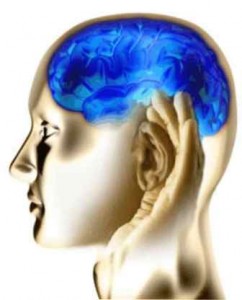Written by Bettie Borton, Au.D. FAAA brought to you by Dana Luzon, Au.D. –
 Hearing devices can help a person detect sounds more efficiently, but they don’t necessarily provide good listening skills. Restoring normal volume levels with amplification does not ensure that speech understanding is effectively restored. While good hearing is a physical function that requires a normal auditory system, speech understanding is a complex process involving normal volume of sound, normal function of the ear and auditory pathways, and a complex “meshing” of the two systems by our brain. Effective listening and auditory-based communications are skills that require each system to be working correctly, and when a hearing loss is present, it disrupts this perfectly designed mechanism.
Hearing devices can help a person detect sounds more efficiently, but they don’t necessarily provide good listening skills. Restoring normal volume levels with amplification does not ensure that speech understanding is effectively restored. While good hearing is a physical function that requires a normal auditory system, speech understanding is a complex process involving normal volume of sound, normal function of the ear and auditory pathways, and a complex “meshing” of the two systems by our brain. Effective listening and auditory-based communications are skills that require each system to be working correctly, and when a hearing loss is present, it disrupts this perfectly designed mechanism.
Good auditory discrimination skills are required for effective communication.
As technically advanced as modern hearing aids might be, hearing devices alone cannot produce listening skills sufficient for our complex communication system. There are a number of reasons for this. For example, to be a good listener, one must integrate a number of skills including attending, understanding, and remembering. Unfortunately, many of these cognitive skills deteriorate as we age. This may show up as a worsening of short-term memory or increased difficulty understanding rapidly presented speech. Despite the fact that those with sensorineural hearing loss characteristically have a difficult time in noisy environments, advancements in hearing technology have certainly improved the quality of sound for wearers in challenging listening environments.
Evidence suggests that loss of hearing produces physical changes in auditory pathways to the brain.
Data suggests that when parts of the auditory pathways and cortex are not receiving sufficient stimulation, they actually undergo morphological changes (and these changes are not good ones). Thus, the old adage of “use it or lose it” actually applies to our auditory mechanism and listening habits, because the hearing-impaired person’s brain may not be receiving the kind of stimulation it needs in order to maintain its proper function without the use of hearing devices and appropriate aural rehabilitation following fitting.
Confidence that what you thought you heard was in reality what was spoken is vital.
Often, when people lose confidence in their ability to communicate in noisy social situations, they simply “drop out” and avoid such environments. Your audiologist can assist you in supplementing hearing aids with additional rehabilitation methods as mentioned above, and this will offer you the kinds of skills and communication strategies that can make all the difference in your performance with hearing devices.
Comprehensive auditory rehabilitation uses many approaches to compensate for hearing loss.
While hearing aids are an essential element of aural rehabilitation, other vital components are education to help you better understand the relationship between cognition and auditory function, learning and incorporating interactive communication strategies, and enhancing auditory performance with computer-based programs designed to enhance the ability to interpret auditory experiences through a variety of exercises and activities. When you or someone you love purchases hearing aids, talk to the audiologist about establishing a comprehensive communication-enhancement plan designed specifically for you. The mere introduction of amplification will not produce optimal readaptation of the auditory system or result in the most advantageous auditory skills unless accompanied by training.
Audiology & Hearing Aids of the Palm Beaches, Inc.
4266 Northlake Blvd
Palm Beach Gardins, FL 33410
561.536.5557
www.hearingcarefl.com
Check Also
RejuvaNATION MedSpa: Elevating Men’s Health to New Heights
Embark on a Journey to Revitalize Your Vitality Rediscover the joy of a spontaneous sex …
 South Florida Health and Wellness Magazine Health and Wellness Articles
South Florida Health and Wellness Magazine Health and Wellness Articles




